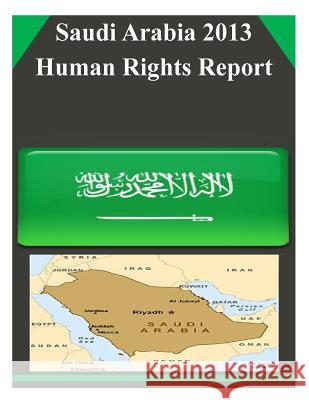Saudi Arabia 2013 Human Rights Report » książka
Saudi Arabia 2013 Human Rights Report
ISBN-13: 9781508829744 / Angielski / Miękka / 2015 / 48 str.
The Kingdom of Saudi Arabia is a monarchy ruled by King Abdullah bin Abdulaziz al-Saud, who is both head of state and head of government. The government bases its legitimacy on its interpretation of sharia (Islamic law) and the 1992 Basic Law, which specifies that the rulers of the country shall be male descendants of the founder King Abdulaziz bin Abdulrahman al-Saud. The Basic Law sets out the system of governance, rights of citizens, and powers and duties of the government, and it provides that the Koran and Sunna (the traditions of the Prophet Muhammad) serve as the country's constitution. In 2011 the country held elections on a nonparty basis for half of the 1,632 seats on the 285 municipal councils around the country. Independent polling station observers identified no irregularities with the election; however, women were not candidates and did not vote. While authorities generally maintained effective control over the security forces, there were some reports of human rights abuses by security forces. The most important human rights problems reported included citizens' lack of the right and legal means to change their government; pervasive restrictions on universal rights such as freedom of expression, including on the internet, and freedom of assembly, association, movement, and religion; and a lack of equal rights for women, children, and noncitizen workers. Other human rights problems reported included torture and other abuses; overcrowding in prisons and detention centers; holding political prisoners and detainees; denial of due process; arbitrary arrest and detention; and arbitrary interference with privacy, home, and correspondence. Violence against women, trafficking in persons, and discrimination based on gender, religion, sect, race, and ethnicity were common, although the government made efforts to counter discrimination in some areas and increasingly prosecuted individuals for trafficking and domestic violence. Lack of governmental transparency and access made it difficult to assess the magnitude of many reported human rights problems. The government identified, prosecuted, and punished a limited number of officials who committed abuses, particularly those engaged in or complicit with corruption. Some members of the security forces and other senior officials reportedly committed abuses with relative impunity.
Zawartość książki może nie spełniać oczekiwań – reklamacje nie obejmują treści, która mogła nie być redakcyjnie ani merytorycznie opracowana.











